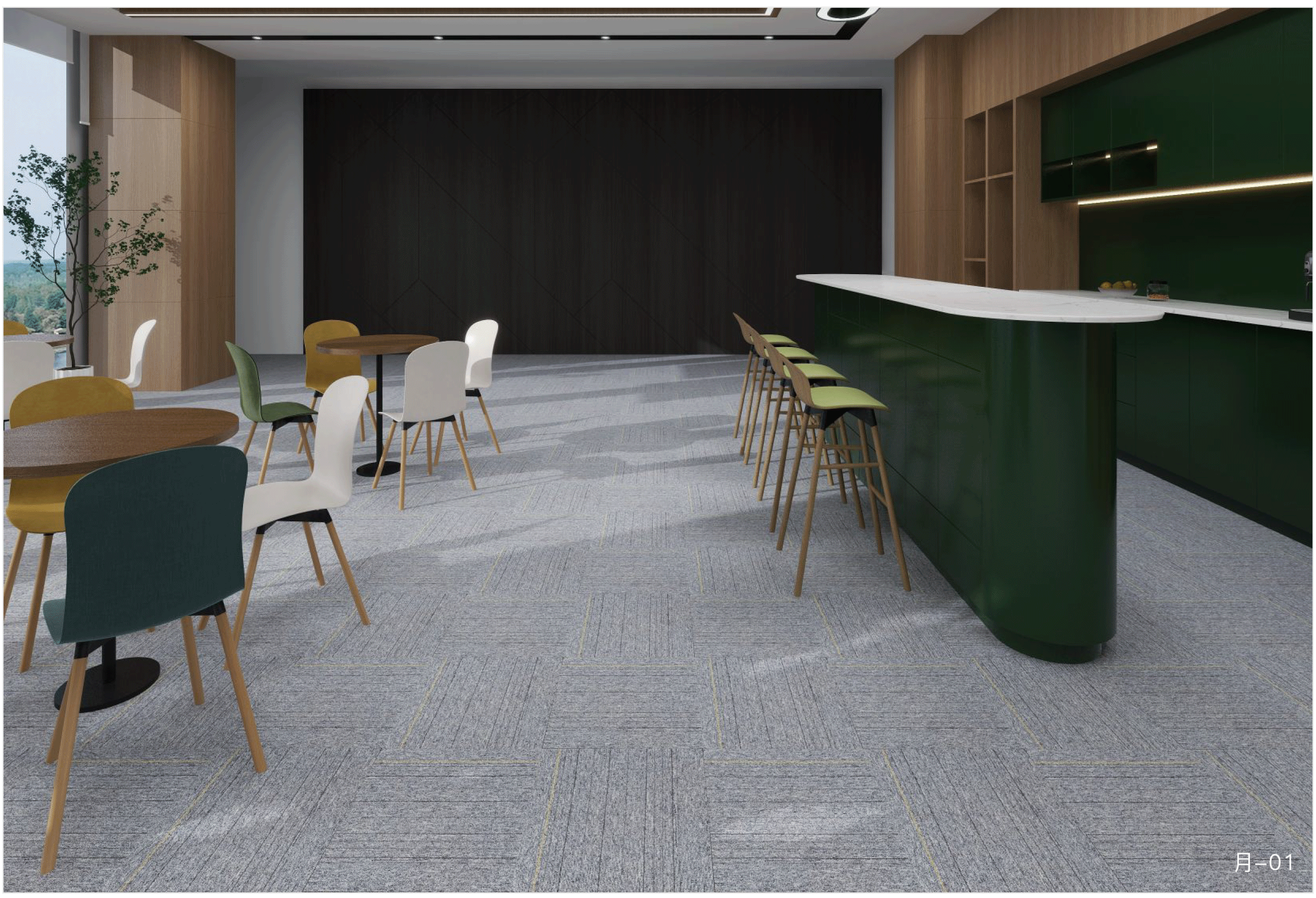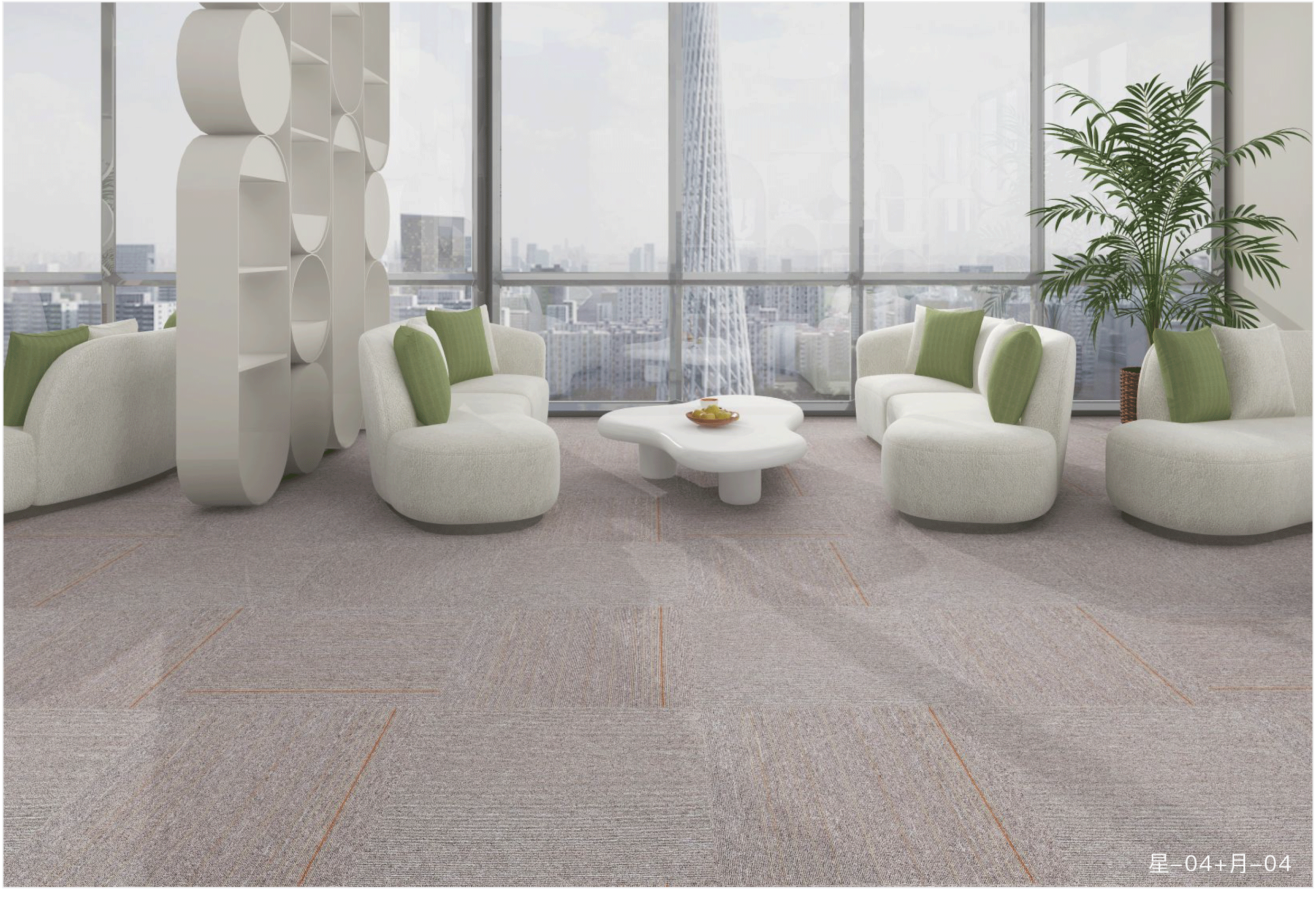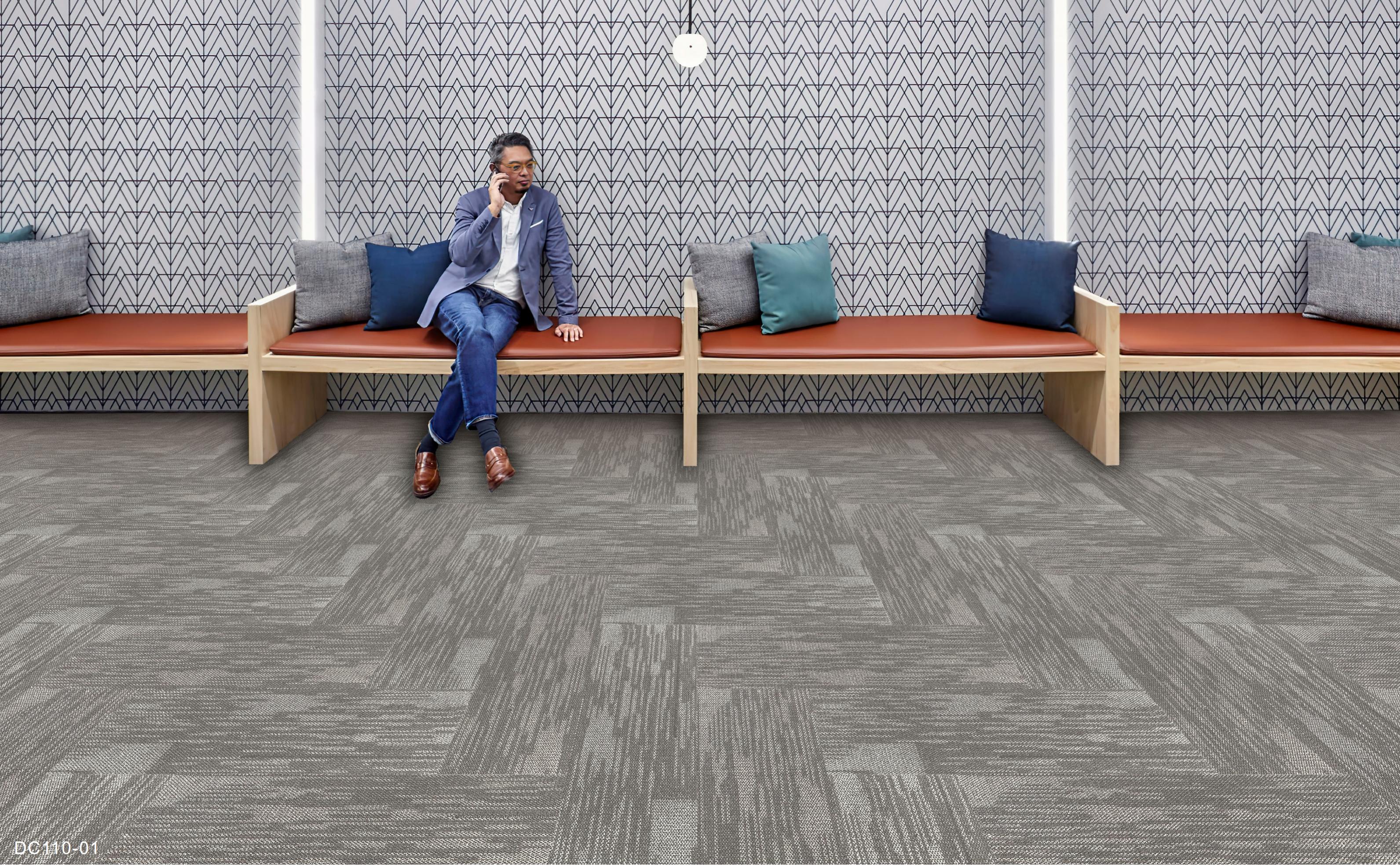Carpet tiles have become a popular flooring solution for a wide range of commercial and residential applications. Whether you are designing a corporate office, a cinema, or even an airport, carpet tiles provide an efficient and stylish alternative to traditional wall-to-wall carpeting. Their modular nature allows for flexibility in design, easy installation, and cost-effective maintenance. But are carpet tiles the right choice for your next project? In this article, we explore everything you need to know about carpet tiles, from their benefits and materials to their maintenance and cost considerations.

Carpet tiles, also known as modular carpets or carpet squares, are small sections of carpet that can be arranged to cover a floor. Unlike wall-to-wall carpeting, which comes in large rolls and must be cut to fit a space, carpet tiles are typically manufactured in square or rectangular shapes, making them easy to handle and install. Available in a variety of materials, including PP PVC Carpet Tiles, Nylon PVC Carpet Tiles, Polyester PVC Carpet Tiles, and PP Bitumen Carpet Tiles, these tiles cater to different needs and preferences.
Hubei Linkun Hongyuan Carpet Corp. (LKHY) is a leading enterprise in the carpet tile industry. Based in Shishou City, Hubei Province, the company specializes in designing, manufacturing, and marketing high-quality carpet tiles. With an expansive factory covering 86,000 square meters and a well-established international presence, LKHY Carpet provides custom, eco-friendly carpet tile solutions for various commercial and residential projects.
One of the biggest debates in flooring solutions is whether to opt for carpet tiles or traditional wall-to-wall carpet. Below is a comparison of both options:
| Feature | Carpet Tiles | Wall-to-Wall Carpet |
|---|---|---|
| Installation | Easy, DIY-friendly | Requires professional installation |
| Customization | High flexibility, mix and match | Limited customization |
| Maintenance | Individual tiles can be replaced | Entire sections need replacement |
| Cost | Lower initial cost, less waste | Higher installation costs |
| Acoustics | Good sound absorption | Superior sound insulation |
From this comparison, it is evident that carpet tiles offer numerous advantages, particularly in commercial spaces like offices, cinemas, and airports.
When selecting carpet tiles for your project, several design aspects need consideration:
Custom Design: Carpet tiles come in a range of styles, colors, and patterns, allowing for creative floor layouts.
Style Diversity: From geometric shapes to abstract designs, carpet tiles offer endless possibilities.
Design Inspiration: Consider your brand image and interior theme when choosing carpet tiles.
For customized design solutions, LKHY Carpet offers free design services with no minimum order requirements. Visit LKHY Carpet to explore the latest designs.
Sustainability is an important consideration in modern design projects. Many manufacturers produce Eco-Friendly Carpet Tiles made from recycled materials or feature Ecotrust backing, reducing environmental impact. Hubei Linkun Hongyuan Carpet Corp. holds multiple green certifications, including the American Carpet Association Green Label Certification and ISO Environmental Management System Certification, ensuring that their products align with global sustainability standards.

Acoustic properties are crucial, especially in offices and cinemas. Carpet tiles provide excellent sound absorption, reducing noise levels and creating a quieter, more comfortable environment. Their modular structure allows for layering, further enhancing soundproofing capabilities.
The pricing factors for carpet tiles depend on:
Material: Nylon and wool options tend to be more expensive than polypropylene and polyester.
Quality: High-end tiles have a longer lifespan but come at a premium.
Installation Costs: DIY installation saves costs, whereas professional installation adds labor expenses.
Brand and Design: Custom-designed tiles may cost more.
For budget-friendly and high-quality options, explore LKHY Carpet's latest collections.

Carpet and Rug Institute (CRI) – Provides certifications and standards for carpet quality and sustainability.
Source: CRI Green Label Plus Program
U.S. Green Building Council (USGBC) – Offers insights on LEED-certified flooring solutions, including carpet tiles.
Source: USGBC LEED Certification
International Organization for Standardization (ISO) – Covers international standards for carpet quality and environmental management.
Source: ISO Flooring Standards
Floor Covering Weekly – An industry-leading publication that discusses market trends and innovations in carpet tiles.
Source: Floor Covering Weekly
Healthy Building Network (HBN) – Offers insights on sustainable flooring and the impact of carpet materials on indoor air quality.
Source: Healthy Building Network